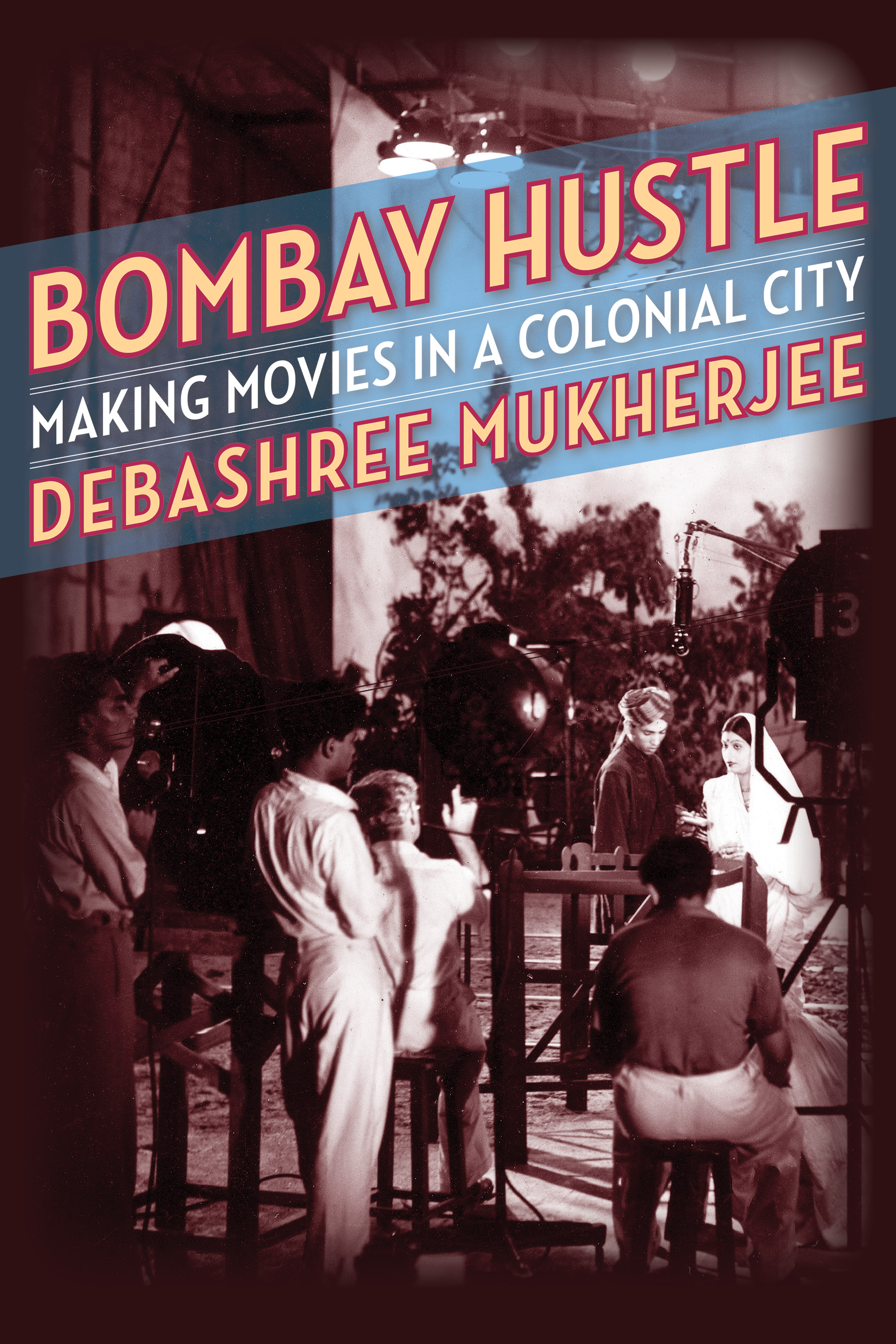
Office Hours: https://pad.riseup.net/p/DM_Office_Hours
Website: https://www.debashreemukherjee.com/
Affiliations: Center for Comparative Media; Film & Media Program, School of the Arts; Institute for the Study of Sexuality and Gender (ISSG), South Asia Institute (SAI), Center for Science and Society (CSS).
I am a scholar of film and media, specializing in modern mass media forms produced in South Asia and its diasporas. I draw methodological insights from film and media studies, feminist decolonial historiography, and environmental humanities. My first monograph, Bombay Hustle: Making Movies in a Colonial City (Columbia University Press, 2020), presents a practitioner’s eye-view of filmmaking activity in late colonial Bombay, approaching cinema as an ecology of energy relations that connect the studio and the screen. The book investigates the material relations between cinema’s bodies, machines, aesthetics, and environments as they intersected with practices of modernity and freedom in late colonial India.
I am currently working on a second book, tentatively titled Tropical Machines: Extractive Media and Plantation Modernity, that presents a media history of indentured labor and plantation capitalism, spanning photography, communications infrastructures, and film traffic across Mauritius, Fiji, and the Andaman Islands.
I edit the peer-reviewed journal BioScope: South Asian Screen Studies and have published in journals such as Film History, Representations, Modern Asian Studies, and Feminist Media Histories. In a previous life I worked in Mumbai’s film and TV industries as an assistant director, writer, and cameraperson on films such as Omkara (2006). Committed to making academic research more accessible to the public, I have curated exhibitions such as Maya Mahal: An Enchanted Look at Hindi Cinema (Kolkata, 2013), and A Cinematic Imagination: Josef Wirsching and the Bombay Talkies (Serendipity Arts Festival, Goa, 2017). I am actively involved with the online film archive and annotation platform www.indiancine.ma and run an Instagram account to popularize early Indian cinema and its women @wildcatofbombay.
Bombay Hustle was awarded an Honorable Mention for the Modernist Studies Association First Book Prize 2021, and commended for the the Kraszna-Krausz Moving Image Book Award and the Richard Wall Memorial Award. The essay, “Somewhere Between Human, Nonhuman, and Woman,” won the 2021 Katherine Singer Kovács Essay award from the Society of Cinema & Media Studies (SCMS).
New and upcoming collaborative projects include an edited volume on Asian Cinemas co-edited with Dr. Zhen Zhang, Dr. Sangjoon Lee, and Dr. Intan Paramaditha (Routledge), and a CSSD working group with Dr. Zeynep Celik Alexander on “Extractive Media” (2023-2025).
Courses
Cinemas of India; Camera in the Tropics; Visual Cultures of Modern South Asia; Media Materialisms; Theory & Culture; Cinematic Cities | Comparative Modernities; Cinema and Colonialism; Intro to Comparative Media
Education
Ph.D in Cinema Studies, New York University (2015); M.Phil in Cinema Studies, School of Arts & Aesthetics, Jawaharlal Nehru University (2009); M.A in Mass Communication, Jamia Millia Islamia University (2004).
Select Publications
(All available to view on https://columbia.academia.edu/DebashreeMukherjee)
2024. Routledge Handbook of Asian Cinemas. Co-edited with Zhen Zhang, Sangjoon Lee, Intan Paramaditha.
2023. Bombay Talkies: An Unseen History of Indian Cinema. Mapin and Alkazi Foundation.
2022. “Archival Conjugations: Queer Traces of Love and Loss in Bombay Cinema,” In A Companion to Indian Cinema, 122-146.
2022. “The Aesthetic and Material Force of Landscape in Cinema: Mediating Meaning from the Scene of Production,” Representations, 157: 115-141.
2022. “Decolonial Feminisms: In Medias Res (Editors’ Introduction),” Feminist Media Histories, 8 (1): 1-15.
2020. Bombay Hustle: Making Movies in a Colonial City, Columbia University Press.
2020. “Somewhere between Human, Nonhuman, and Woman: Shanta Apte’s Theory of Exhaustion,” Feminist Media Histories, 6(3): 21-51.
2019. “A Specter Haunts Bombay: Censored Itineraries of a Lost Communistic Film,” Film History, 31(4): 29-59.
2016. “Scandalous Evidence: Looking for the Bombay Film Actress in an Absent Archive (1930s-1940s),’ in C Gledhill & J Knight (eds.) Doing Women’s Film History: Reframing Cinema’s Past and Future, University of Illinois Press.
2014. Filmi Jagat, A Scrapbook: Shared Universe of Early Hindi Cinema. With K Bhaumik and R Allana. Art Heritage & Niyogi Books.
2013. “Creating Cinema’s Reading Publics: The Emergence of Film Journalism in 1930s and 1940s Bombay,” in Ravi Sundaram (ed.) No Limits: Media Studies from India. Oxford University Press, pp.165-198.


